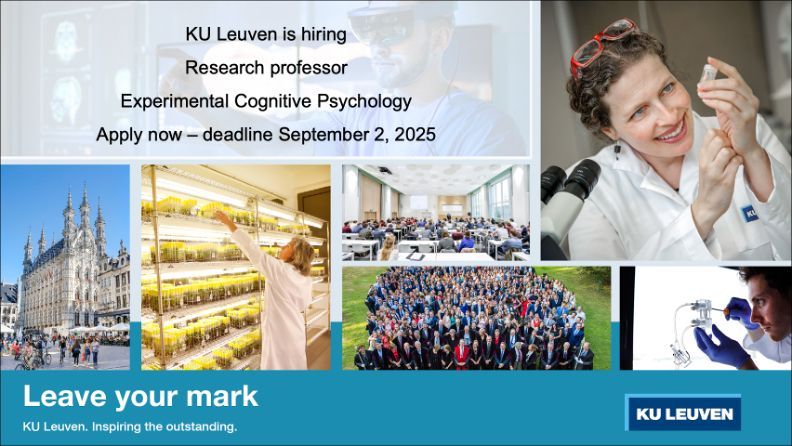



the experience of mental effort! Now out in @cerebralcortex.bsky.social Led by Gaia Corlazzoli.
Paper: desenderlab.com/wp-content/u.... Thread ↓↓↓

the experience of mental effort! Now out in @cerebralcortex.bsky.social Led by Gaia Corlazzoli.
Paper: desenderlab.com/wp-content/u.... Thread ↓↓↓


















The Faculty of Psychology and Educational Sciences invites applications for a full-time Research Professorship in Experimental Cognitive Psychology within the B&C research unit.
#PsychSciSky #Neuroscience #Neuroskyence

The Faculty of Psychology and Educational Sciences invites applications for a full-time Research Professorship in Experimental Cognitive Psychology within the B&C research unit.
#PsychSciSky #Neuroscience #Neuroskyence
@danbang.bsky.social. Critically, participants adapted their average level of confidence depending on the metacognitive ability of the collaborator

@danbang.bsky.social. Critically, participants adapted their average level of confidence depending on the metacognitive ability of the collaborator

